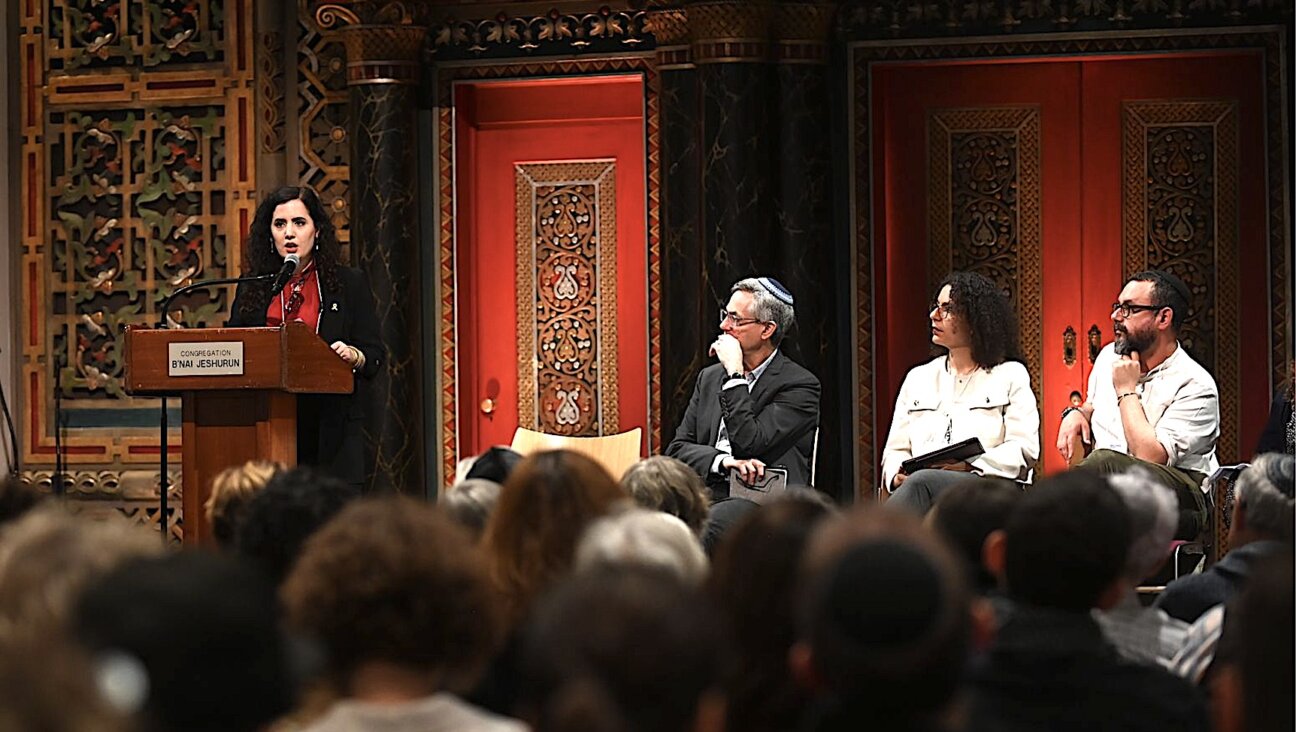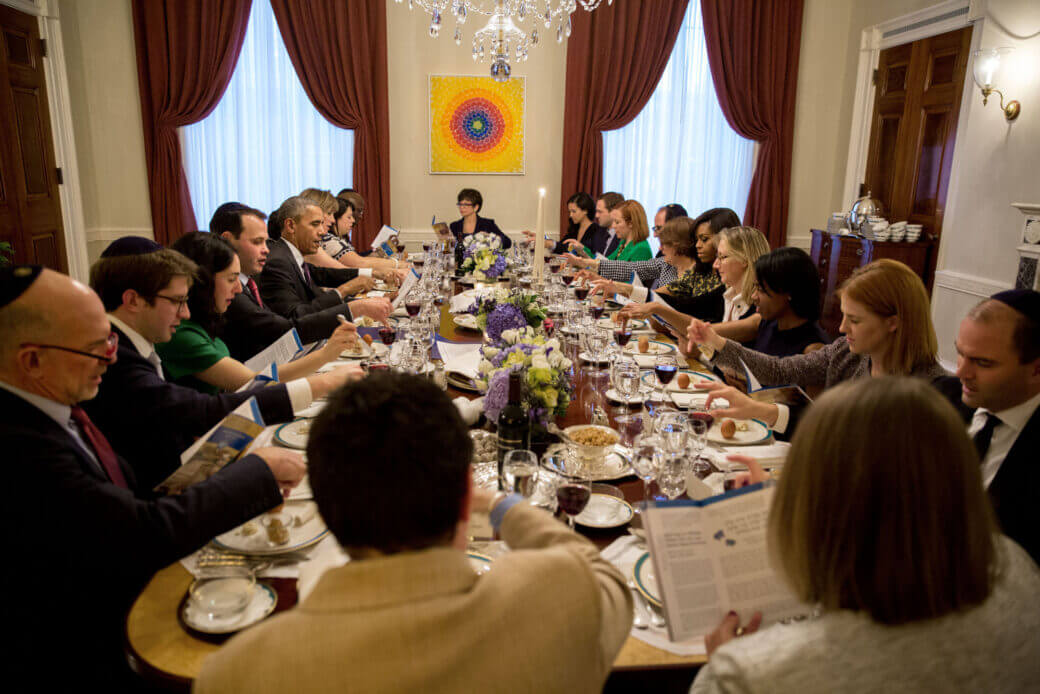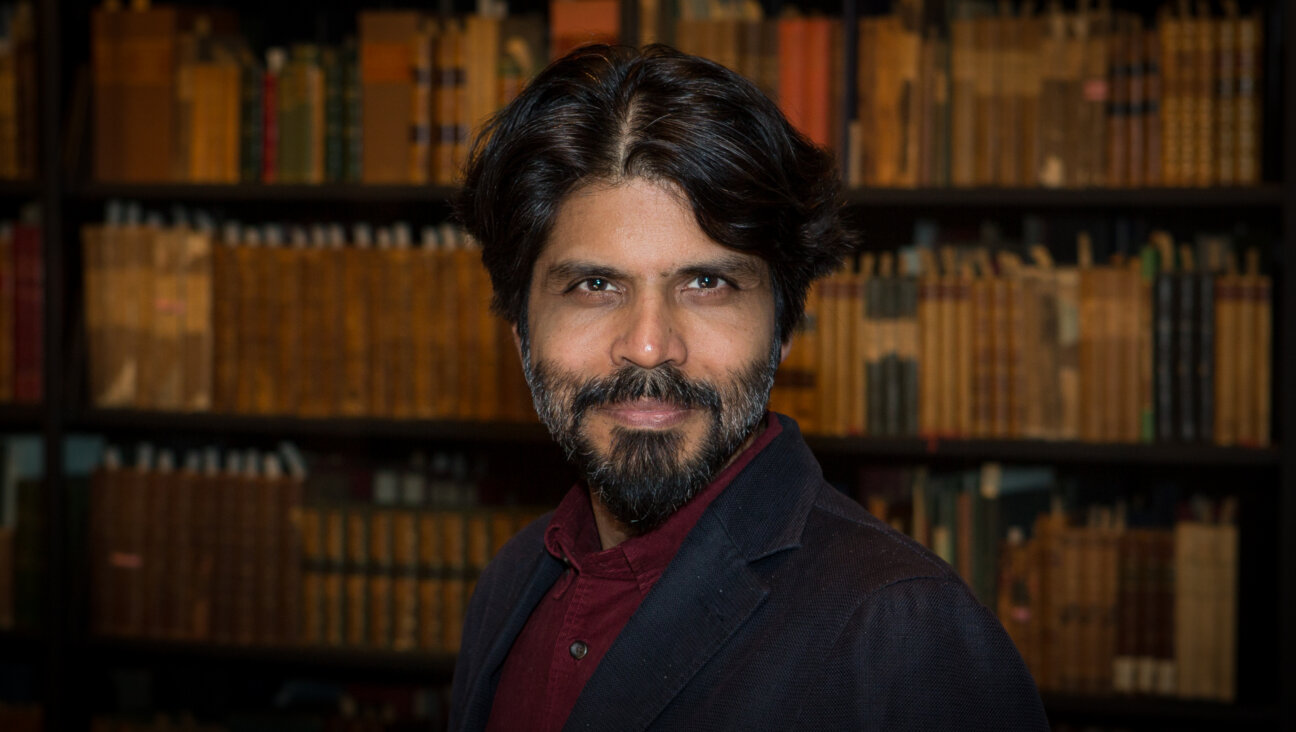One Bagel, Two Bagel?
Rashi Fein from Boston writes:
“For some years I have had a dispute with a dear friend. I say that the plural of bagel is bagel. He says that the plural of bagel is bagels. I explain my position by arguing that bagel is a Yiddish word and that ‘two bagels’ in Yiddish would be tsvey beygl. He says that in English the plural has to be bagels. Who is right? Is there some general rule that might apply?”
There is indeed a general rule, and it says that Mr. Fein is wrong and his friend — as well, I might say, as the rest of us who say “bagels” when speaking English — is right. Simply stated, the rule is this: When a word borrowed from a foreign language has become domesticated in the borrowing language, the speakers of which are no longer conscious of its foreign origins, it obeys all the borrowing language’s grammatical rules, including those governing the formation of plurals.
This is why English speakers say “kindergartens” and “cappuccinos” instead of “kindergerten” and “cappuccini,” as they would be required to do, using the German and Italian plural forms, if Mr. Fein were to have his way. It is also why — if they are among the few who use such terms — they say “gastarbeiter” and “gelati” rather than “gastarbeiters” and “gelatos,” since they quite rightly sense that German Gastarbeiter, “foreign worker,” and Italian gelato, Italian-style ice cream or ices, have not been widely accepted as English words. And since “bagel” is clearly in the category of “kindergarten” rather than that of “gastarbeiter,” it should be pluralized in the English fashion.
Of course, there are cases that are less clear, and in some of them one encounters both alternatives. Take “petit four” — the French words that mean, literally, “little oven” — for a small square of cake topped with icing. The plural of this in French, though written petits fours, with an “s” added to each word, is pronounced “peh-tee foor,” the same as the sin-gular. In English, on the other hand, one hears both “peh-tee fawr” and “peh-tee fawrs,” depending on the speaker. Moreover, English speakers who add an audible plural “s” to “four” also tend to anglicize the pronunciation of “petit” by stressing its first rather than its last syllable and saying “petty fours.” Has petit four been domesticated in English? One can only say that many speakers think it has been while some appear to think it hasn’t.
Or take the case of a newer word, paparazzo (pah-pah-RAH-tso), an invasive news photographer. This word has entered English in recent years from Italian, where it is a relatively new coinage, too. (It derives from the name of a freelance photographer in Federico Fellini’s 1959 film “La Dolce Vita.”) Although by now, many, if not most, English speakers are familiar with this word, its plural when used in an English sentence is still “paparazzi.” It seems safe to hazard the guess, however, that as its use continues to spread, we will soon be hearing “paparazzos.”
Italian food terms are instructive in this respect. In addition to cappuccinos, think of the following English plurals: cannelloni, linguini, pizzas, pastas. Why have the Italian words pizza and pasta been pluralized in an English manner (you’ll never hear “pizzi” or “pasti” in an English sentence) while the plurals of cannellone and linguine have not? One reason, I think, is that pizza and pasta are words known to every English speaker, whereas cannelone and linguine are not — familiarity with them being, for the most part, still lim-ited to frequenters of Italian restaurants. Moreover, cannelloni and linguini, like spaghetti, have no English singular. A single stick of spaghetti in Italian is a spaghetto; in Eng-lish it’s “a piece of spaghetti.”
Generally, we can know by looking at a printed word whether it has been domesticated in English, because it appears in italics if it hasn’t been. Yet ultimately, the decision of the lexicographers whether to italicize it or not depends on the degree of its Anglicization in popular usage, of which pluralization is perhaps the best indicator. Thus, for example, in the 1950s and ’60s, the word “apparatchik,” borrowed from Russian, was generally italicized and pluralized as “apparatchiki”; nowadays, we say “apparatchiks” and leave out the italics.
I doubt that it would occur to Mr. Fein to say “apparatchiki” today, much less “pizzi” or “pasti.” Why, then, does he make an issue of “bagel”? I would guess the reason for this is that while he doesn’t know Russian or Italian, he does know Yiddish and therefore regards “bagel” as a word over which Yiddish has proprietary rights. Emotionally, this may be understandable, but it isn’t very logical. If we’re going to think linguistically, we have to treat all languages as equals. And since there probably isn’t a language in the world without words that have been borrowed from other languages and thoroughly assimilated by the borrower, we can’t treat “bagel” as an exception.
Questions for Philologos can be sent to [email protected].
The Forward is free to read, but it isn’t free to produce

I hope you appreciated this article. Before you go, I’d like to ask you to please support the Forward.
At a time when other newsrooms are closing or cutting back, the Forward has removed its paywall and invested additional resources to report on the ground from Israel and around the U.S. on the impact of the war, rising antisemitism and polarized discourse.
Readers like you make it all possible. We’ve started our Passover Fundraising Drive, and we need 1,800 readers like you to step up to support the Forward by April 21. Members of the Forward board are even matching the first 1,000 gifts, up to $70,000.
This is a great time to support independent Jewish journalism, because every dollar goes twice as far.
— Rachel Fishman Feddersen, Publisher and CEO
2X match on all Passover gifts!
Most Popular
- 1

News A Jewish Republican and Muslim Democrat are suddenly in a tight race for a special seat in Congress
- 2

Fast Forward The NCAA men’s Final Four has 3 Jewish coaches
- 3

Film & TV What Gal Gadot has said about the Israeli-Palestinian conflict
- 4

Fast Forward Cory Booker proclaims, ‘Hineni’ — I am here — 19 hours into anti-Trump Senate speech
In Case You Missed It
-

Yiddish הונדערטער פֿרומע ייִדן לאַנצירן לינק־געשטימטע גרופּע אין מאַנהעטןHundreds of observant Jews launch left-wing group in Manhattan
הרבֿ יוסף בלאַו האָט בײַ דער קאָנפֿערענץ באַדויערט וואָס דער רעליגיעזער ציוניזם אין ישׂראל איז „פֿאַרכאַפּט געוואָרן“ פֿון די רעכטע.
-

Fast Forward Trump’s ‘Liberation Day’ includes 17% tariffs on Israeli imports, even as Israel cancels tariffs on US goods
-

Fast Forward Hillel CEO says he shares ‘concerns’ over campus deportations, calls for due process
-

Fast Forward Jewish Princeton student accused of assault at protest last year is found not guilty
-
Shop the Forward Store
100% of profits support our journalism
Republish This Story
Please read before republishing
We’re happy to make this story available to republish for free, unless it originated with JTA, Haaretz or another publication (as indicated on the article) and as long as you follow our guidelines.
You must comply with the following:
- Credit the Forward
- Retain our pixel
- Preserve our canonical link in Google search
- Add a noindex tag in Google search
See our full guidelines for more information, and this guide for detail about canonical URLs.
To republish, copy the HTML by clicking on the yellow button to the right; it includes our tracking pixel, all paragraph styles and hyperlinks, the author byline and credit to the Forward. It does not include images; to avoid copyright violations, you must add them manually, following our guidelines. Please email us at [email protected], subject line “republish,” with any questions or to let us know what stories you’re picking up.















